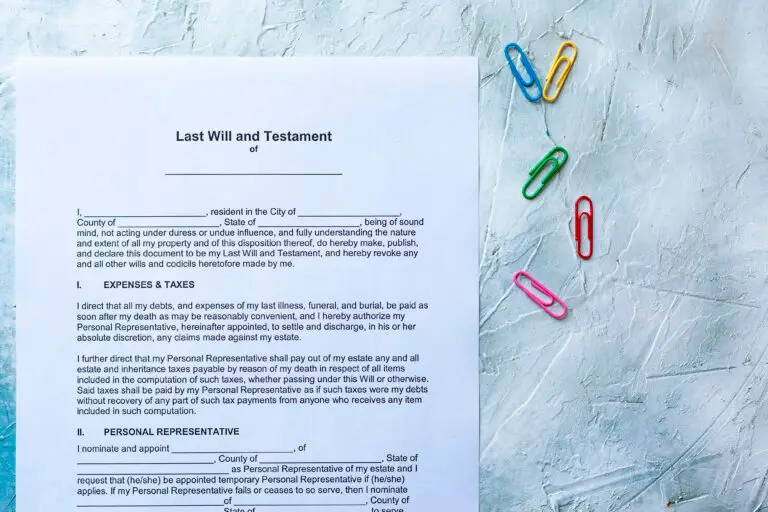Written Will: Can You Write a Will and Get it Notarized?
When it comes to making a will, can you simply write it yourself and then get it notarized? Yes, you can! Here are the key details you need.
Here at Pryor Mobile Notary, we’re dedicated to clearing up your estate planning concerns. A common question we hear is, “Can you just write a Will and get it notarized?” Well, you’re in for a treat because we’re tackling that very question today. In this guide, we’ll provide all the necessary information and tips you need. Stick around till the end, as we’ll share insights to guide you through the process of creating a Will and making sure it’s legally sound.

Can I Write My Own Will?
Absolutely! You can write your Will on your own. Whether you prefer to avoid lawyers or enjoy taking a do-it-yourself approach, there are ways to go about it. One simple way is by drafting a Simple Will, which covers the basics like specifying who gets what and naming a guardian for any minor children if needed. This kind of Will is usually easy to create on your own.
But it’s important to note that while writing your own Will is allowed, you should proceed with caution and be intentional about it. Just putting your wishes on paper doesn’t automatically ensure its legal validity in court later on. In other words, your Will needs to be both legally sound and valid.
Stay with us as we guide you through the steps to create a legally binding Will on your own. We’ll provide helpful insights to make sure your self-drafted Will meets all the legal requirements.
Is Notarization Necessary for Your Will?
Creating a valid Will involves including specific elements to prevent any potential complications down the road. The last thing you want is to invest time crafting your own Will to discover it may not stand up in court. This could lead to confusion, stress about asset distribution, and even legal delays with increased court fees. To steer clear of these challenges, make sure your Will incorporates the following crucial elements:
- A clear title: Label the document as a “Last Will and Testament” to avoid confusion.
- Your full legal name and address: Provide accurate personal details for identification.
- A statement of mental soundness: Declare that you are of sound mind and not under duress or undue influence during the Will’s creation.
- Full legal names of appointed individuals:
Executor: The person responsible for executing your Will.
Guardian: For dependent children if you’re the last surviving parent.
- Full legal names of beneficiaries: Clearly identify those inheriting your property upon passing.
- A comprehensive list of assets: Include clear descriptions to eliminate potential confusion.
- Your original signature and date: Sign the document in the presence of two witnesses.
- Original signatures and dates of two witnesses: Witnesses who can testify in court regarding your signature and mental state at the time of signing.
How to Make a Legal Will?
Once you’re confident that your Will is legally sound, you might wonder if notarization is necessary.
Check State Rules: Review your state’s regulations on estate plans. Some states mandate Will notarization, while others do not. In many cases, as long as your Will is appropriately created and witnessed, notarization may not be required. However, if your state mandates it, notarizing your document becomes essential.
Consider Notarization Regardless: Even if notarization isn’t required by your state, it’s worth considering. Opting for notarization allows you to include a self-proving affidavit with your Will. This eliminates the need for the court to scrutinize the validity of your signature and witness signatures. Notarization can streamline and expedite the probate process, providing relief for your loved ones during a challenging time.
Where to Get Your Will Notarized: Exploring Convenient Options
Wondering where to get your Will notarized? Look no further! There are several accessible options to ensure your legal documents are properly notarized.
- Traditional Locations: You can visit places like attorney offices for notary services. However, if you’re writing your own Will, there might be more convenient options.
- Local Notary Public: Conduct a simple search for a Notary Public in your neighborhood. They are often available in various places, including banks, post offices, or real estate offices
- Mobile Notary Services: For the utmost convenience, consider a mobile notary service. Companies like Pryor Mobile Notary can come to your home or office, ensuring a hassle-free notarization process without leaving your premises.
